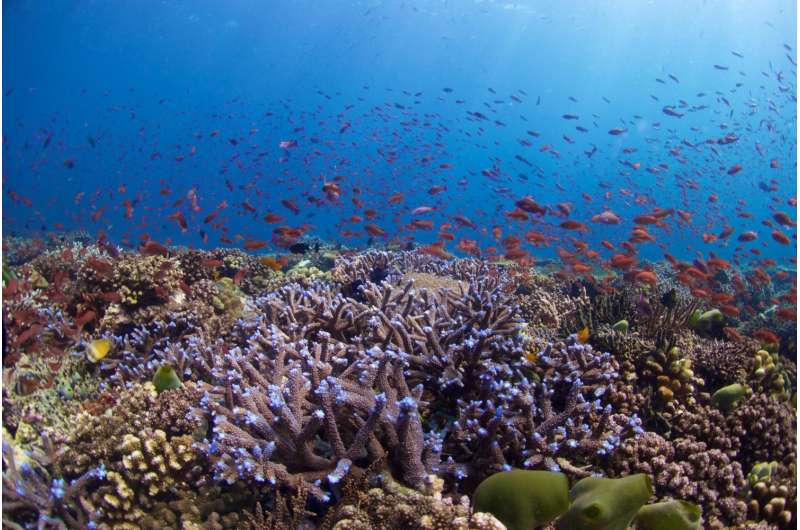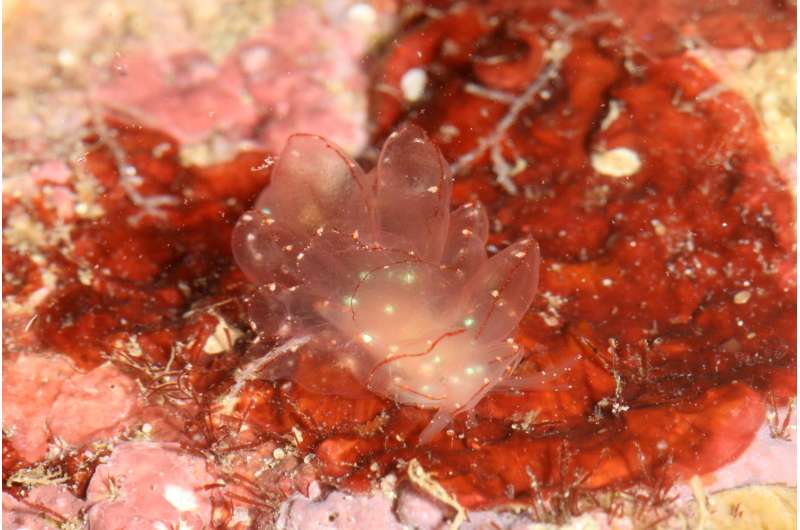Scientists from the California Academy of Sciences advancing hope for reefs in the Philippines

The California Academy of Sciences' initiative continues to advance global understanding of coral reef science through a series of ambitious expeditions. The team most recently returned from the Verde Island Passage in the Philippines—a longtime regional focus of Academy research considered the "center of the center" of marine biodiversity. The Academy's science diving teams explored both deep and shallow ecosystems to document species richness, evaluate ecosystem health, and gather data to support smarter ocean conservation strategies.
Building upon nearly three decades of Academy research in the region, the team has once again discovered several new species of fish, nudibranchs, urchins, and sand dollars. Academy researchers have visited the region since 1992 and in that time have discovered over one thousand species that are new to science. Just this month, Academy Curator of Invertebrate Zoology Dr. Terry Gosliner formally described eight new nudibranch species collected from earlier expeditions. Academy scientists also worked to promote a deeper appreciation for coral reefs through community outreach and presentations to a local school.
Dr. Rebecca Albright, Academy curator and coral biologist, assessed coral health and diversity across shallow dive sites—building upon her research on how to maximize coral recruitment in the face of environmental stressors. Her findings help leverage restoration efforts that enhance reef resilience.
In addition to discovering new marine species, the deep-diving "twilight zone" team also documented evidence of human impacts at 200-500 feet below the ocean's surface, indicating that mesophotic deep reefs are as heavily impacted as their shallow counterparts and in need of strong protections. Despite the fact that these unique ecosystems are greatly impacted by pollution and storm damage, twilight zone reefs are largely ignored by current protections. Marine protected areas (MPAs) and sanctuaries tend to favor shallow reefs better known to science and coastal communities.

Visitors to the California Academy of Sciences in San Francisco can meet scientists from the Hope for Reefs initiative this evening (June 8, World Oceans Day) at Coral Reef NightLife. Visitors to the Academy's Steinhart Aquarium can also take a closer look at mesophotic marine creatures from the Philippines in Twilight Zone: Deep Reefs Revealed.
Considered the "rainforests of the sea," coral reefs are some of the most beautiful, biologically diverse, and economically valuable ecosystems on Earth. They cover less than 1% of the ocean but contain more than 25% of all marine species. Coral reefs are integral to the livelihoods and well-being of billions of people worldwide, providing protection from erosion and storm damage, and generating income through ecotourism and fishing. Nearly 75% of the world's coral reefs are currently threatened by the combined impacts of overfishing, habitat destruction, water pollution, climate change, and ocean acidification. The Academy's Hope for Reefs initiative aims to reverse the potential collapse of global coral reefs by exploring little-known ecosystems, advancing coral reef science by decades, and communicating these issues to the public through innovative exhibits, media, and education programs. This work is supported by visionary donors taking action before life-supporting coral reefs are lost forever.
More information: Elise Ong et al, Like a bat out of heaven: the phylogeny and diversity of the bat-winged slugs (Heterobranchia: Gastropteridae), Zoological Journal of the Linnean Society (2017). DOI: 10.1093/zoolinnean/zlw018
Journal information: Zoological Journal of the Linnean Society
Provided by California Academy of Sciences



















